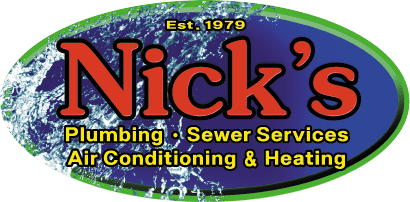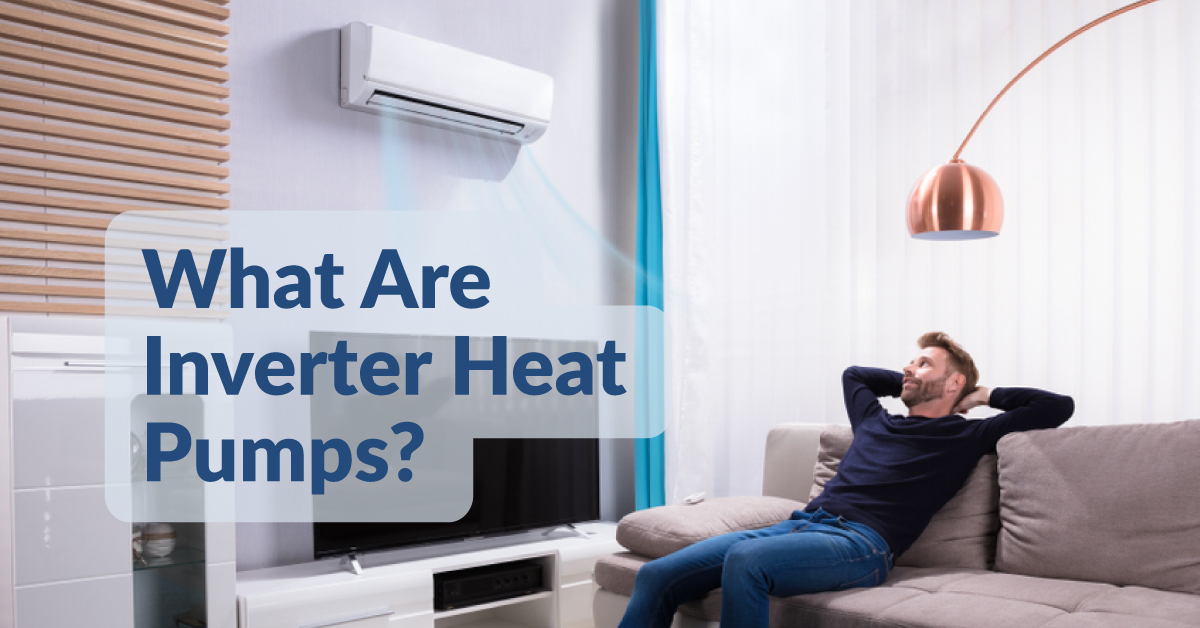Author: Jeff O'Hara
Severe winter weather is no longer an anomaly here in Houston, TX. We’ve been enduring colder-than-average conditions for the last three years, including the most recent Christmas Eve freeze of 2022. Many of us, including your humble blog writer, found ourselves surprised by how inadequately many of our home heating systems performed.
Now, of course, Houston area homes aren’t built with brutal winter weather in mind, considering we spend 70 – 80% of the year with the air conditioner on. This means furnaces are often an afterthought when it’s time to replace our HVAC systems, especially when we see what that new air conditioner costs. Usually, homeowners will opt to install a less expensive furnace to save money on the unexpected installation costs.
The HVAC Industry is Shifting to New Technologies.
Since the 1960s, whole-house HVAC systems have been the standard for residential comfort systems; for the most part, they have served us well. But, much for the same reason, you wouldn’t drive a car based on 50-year-old technology and wouldn’t want to continue heating and cooling your home with outdated methods.
As part of our exclusive partnership with Trane® Technologies, Nick’s Air Conditioning is proud to offer the complete line of Mitsubishi Electric ductless, mini-split heat pumps. The purpose of this blog, however, will not be to persuade you to install a Mitsubishi Electric heat pump –we’ll get to that in a future blog. Instead, we’ll introduce you to the concept of the inverter heat pump, what makes them different from whole-house HVAC systems, and why one may be a good choice for your home.
I Have a Furnace, but I’ve Never Heard of a Heat Pump. What’s the Difference?
Right out of the gate, I’d like to clear up the misconception that a heat pump’s only purpose is to provide heat. Heat pumps, or mini-splits –named for their small size and dual function—do not function like a standard air conditioner or furnace. When in “heating” mode, the pump draws heat out of the outdoor air to transfer into your home. In “cooling” mode, the pump instead draws the heat out of your home and disperses it outside. Heat pumps use a liquid refrigerant to facilitate the movement of heat from one set of pump coils to another.
What Exactly is an Inverter Heat Pump?
The best way to explain what an inverter heat pump does is to first look at how our current, standard HVAC systems operate. With a traditional HVAC system, window AC units, and even space heaters, a continuous “on-off-on” cycle must be maintained to keep your home comfortable.
The length of each on or off cycle will vary, based on weather conditions and thermostat settings, with your HVAC system constantly playing “catch up” to the thermostat once the temperature drops below the set point. The repetitive cycling is because your central AC or furnace can only operate at one speed: full blast. It’s either on or it’s off. There is no in-between. Instead of being restricted to a single operating speed, inverter heat pumps use a fully variable-speed compressor motor that can run at any power level.
How is an Inverter Heat Pump Different from a Furnace?
To generate heat, a furnace requires a combustible fuel source to provide the energy, usually natural gas, propane, electricity, or a combination of two of those. Heat pumps do not use combustible fuels to generate their heat; they use standard 110-volt electrical power. As a bonus, during the summer, your heat pump can operate in reverse to extract air from your home in Houston to cool it down using it as an air conditioner.
Does an Inverter Heat Pump Run Continuously?
As an inverter heat pump is designed to change motor speeds to continually react to temperature sensors instantly, it never completely shuts off. Consider an inverter heat pump compared to a car running in ‘cruise control’ mode –without manual intervention, the inverter pump will not start or stop. Instead, it will run in a variable-speed mode where the amount of energy used is continually adjusted as needed to maintain the desired temperature and humidity levels.
What are Some Advantages of an Inverter Heat Pump?
- Consistent Temperatures: No more fussing with the thermostat in an attempt to achieve optimum comfort. Inverter heat pumps use continually operating variable-speed motor technology to maintain continuously comfortable conditions. Over the years, the lack of repeated on-off-on cycles dramatically reduces wear and tear on these units.
- Controlled Energy Use: Inverter heat pumps accurately maintain your home’s temperature, eliminating repeated on-off cycles that require additional energy. Inverter heat pumps can save a homeowner as much as 70% of heating and cooling costs, and since no fuel combustion is needed, harmful emissions are almost eliminated.
- Powerful Enough to Heat or Cool Quickly: Returning from a vacation or opening up your summer home for the first time? Inverter-driven mini split heat pumps will quickly get your home up –or down—to the desired temperature and comfort level, thanks to the efficiency and high-speed capabilities of the inverter-driven compressor.
How Long Does an Inverter Heat Pump Last?
Under normal usage conditions, mini-split heat pumps can last between 12 – 15 years, especially if maintained properly. Since inverter heat pumps are relied upon for twenty-four-hour-a-day operation for much of their lifespan, it can be expected that the replacement of moving parts or motor brushes may be required.
Let Nick’s Air Conditioning Help Introduce You to Inverter Heat Pumps.
It’s no secret that the home heating and air conditioning industry is changing for the better, as environmental concerns and the need for higher efficiency to reduce energy use and cost. Nick’s Air Conditioning is at the forefront of that change, offering the newest products from our manufacturing partners Trane® Technologies and Mitsubishi Electric, as well as the training and expertise to install and service them.
If you still have questions about inverter heat pumps and if they’re suitable for your home, call Nick’s Air Conditioning, and ask for one of our HVAC experts.


